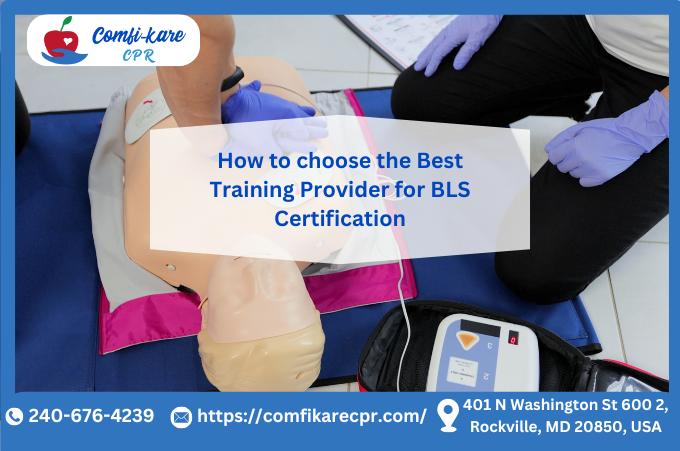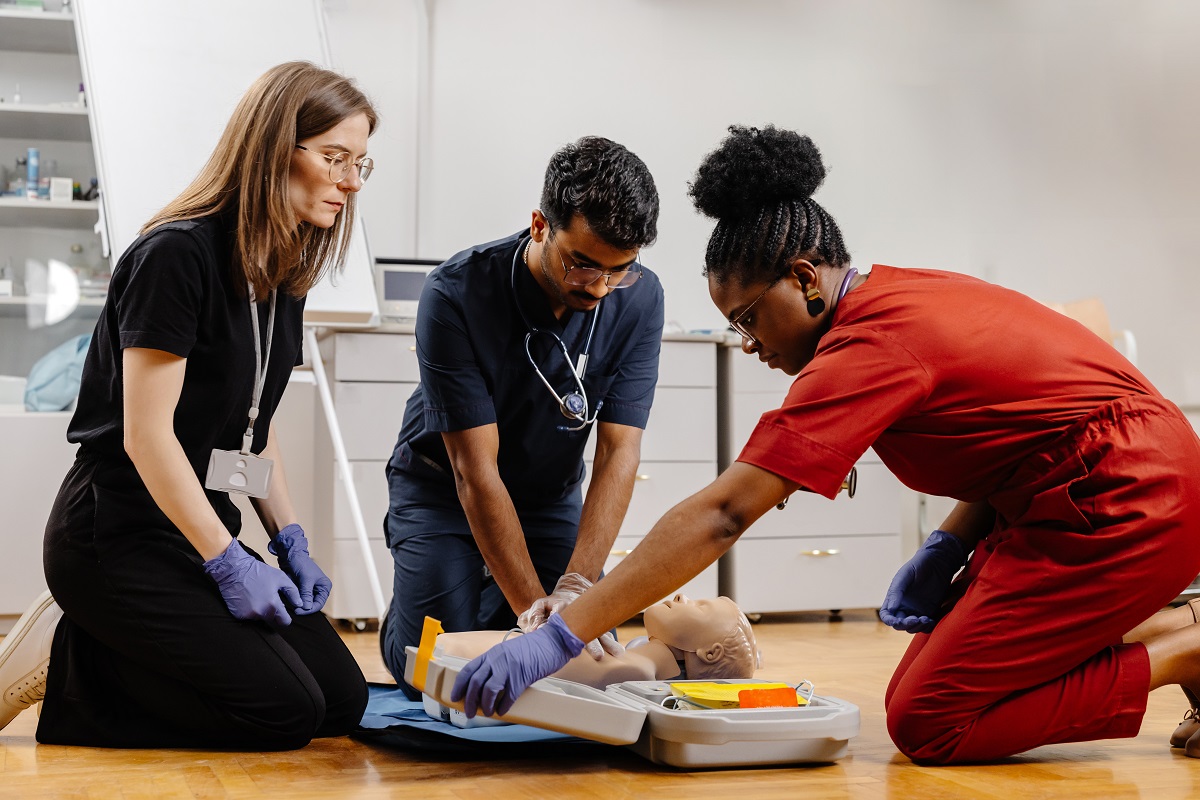
How to choose the Best Training Provider for BLS Certification in Rockville?
Basic Life Support certification equips individuals with lifesaving skills. This training is crucial for healthcare providers, emergency responders, and community members who wish to be ready in case of medical emergencies. Finding a reputable BLS training provider is vital. Use this guide as a reference when selecting your training and certification provider.
BLS Certification: What It Encompasses
BLS (Basic Life Support) certification includes CPR (cardiopulmonary Resuscitation), the use of AEDs (automated External Defibrillators), and techniques for choking victims. However, this course covers more than just CPR; rescue breathing techniques, team dynamics training, and basic emergency response are also covered as foundational skills that make you better equipped in case of emergencies – perfect not just for healthcare professionals but for anyone wanting to stay prepared in emergencies – these foundational skills help evaluate scope and quality of training provided by providers as they become essential tools when faced with emergencies!
Verify Accreditation
Verify that a widely recognized organization accredits the training provider. Accredited courses adhere to the most recent protocols and guidelines. This accreditation guarantees that your certification will be valid for personal and professional use. Uncertified providers may not provide training that meets the necessary standards, or their employers may not accept it.
Take a look at the course content
BLS training courses are more than just the basics. The training should cover:
- Correct chest compressions
- Rescue breathing techniques
- Use and handling of AED
- Team dynamics during emergencies
Some courses will also cover specific responses like handling opioid overdoses. A well-defined course syllabus is a sign of a quality provider. Be sure to include all the essential topics. Hands-on practice is vital for BLS mastery. The depth of skill proficiency is often lacking in classes that only rely on videos or lectures.
Verify Instructor Credentials
The instructors are a key component of BLS training. You should look for training providers with certified instructors with relevant experience. Instructors with real-world emergency medical experience can provide valuable insights beyond the standard course materials. Asking about the backgrounds of qualified instructors will improve your learning experience.
Select the right training format
The BLS course can be taken in various formats to suit different schedules. In-Person: Ideal for hands-on experience within a structured environment.
Blended learning: Combines online theory with in-person practice.
Online-Only Learning of BLS Is Unsuitable Practical skills are required for BLS. Most individuals prefer in-person or blended learning because hands-on experience is key for mastering these lifesaving techniques. Before making this commitment, please ensure the provider’s schedule fits with yours, including whether evening or weekend classes are available.
Evaluate Class Size and Student-to-Instructor Ratio
Smaller class sizes encourage more interaction and provide personalized guidance. Look for training providers that prioritize low student-to-instructor ratios. Too many students in a class can reduce the time each student has to practice or get feedback. Ideal classes should only have six to ten people per instructor to provide quality instruction.
Evaluate Training Equipment and Facilities
The training provider should have modern and well-maintained equipment. The training facility should have mannequins, AED simulators, and other relevant tools. Modern and realistic equipment will allow you to gain real-life experience. Clean, well-organized spaces with high-quality training equipment reflect a provider’s dedication to providing thorough training.
Check out the Reviews and Testimonials
Review from previous students can provide insight into the quality of training and reputation of an organization. Look for feedback about instructor expertise, class organization, and course effectiveness. Third-party reviews can provide a candid opinion and highlight the strengths and weaknesses of a training experience.
Confirm the availability of recertification options
BLS certifications usually last for two years. Find providers who offer convenient refresher courses or recertification sessions. Keeping your certification current and updated with any protocol changes is important. If you are considering a long-term BLS course, check if your provider offers discounts or reminds returning students.
Get hands-on practice with real-world scenarios
A quality BLS course should include simulations of real-life emergencies. All of these activities contribute to the development of skills. Hands-on training helps you build confidence and develop muscle memory to react accurately under pressure.
Questions about Certification Processes and Validity
It’s important to ask about the certification process. Ask about the format, timing, and verification process. Verify that the certification is recognized both locally and nationally, especially if it will be used professionally.
Location and accessibility are important
Attending in-person sessions can be easier if you are located near your home, work, or public transport routes. If you need to, choose a Rockville provider near your home, workplace, or public transportation routes. If you plan to attend more than one session or need some flexibility with your schedule, accessibility is important.
Look for resources on customer support and post-training
Some training providers provide additional resources and support even after the course has ended. Some training providers offer online materials, practice videos, or direct customer service for questions. This ongoing support can be very valuable when preparing to recertify or refresh your skills. Support for students after training shows that providers are committed to the long-term success of their students.
Conclusion:
You can get a good training experience by considering factors such as instructor quality, accreditation, hands-on training, and the training format. By choosing a reputable training provider, you will gain essential skills that can save your life and the confidence to deal with real-world emergencies.

